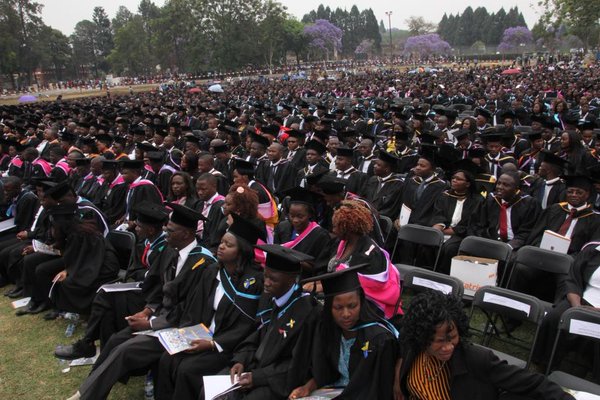In a dramatic turn of events, seven students from the University of Zimbabwe (UZ) celebrated their graduation on Friday despite initially failing their exams, in a case now shrouded in controversy over alleged result tampering.
The students, who had received failing grades, were unexpectedly handed diplomas after university officials reportedly pressured lecturers into altering their results.
Rather than adhering to the standard procedure of supplementary examinations for those who didn’t pass, the institution’s academic leaders opted for a more questionable solution as revealed by sources from The NewsHawks.
The students involved were Linford Masotcha (41% in Small Animal Medicine), Arnold Mushayi (40% in Small Animal Medicine), Obey Kadyamajongwe (43% in Small Animal Medicine and 44% in Small Animal Surgery), Adeline Musunda (43% in Small Animal Surgery), Moses Madenga (46% in Small Animal Medicine, 40% in Small Animal Surgery, and 45% in Herd Health), Tadiwa Karumbidza (43% in Small Animal Medicine), and Wright Zvomuya (40% in both Small Animal Medicine and Small Animal Surgery).
Traditionally, UZ students who fail their exams are expected to either retake the failed subjects or complete supplementary examinations after a six-week period. However, in a surprising departure from these norms, university leaders allegedly directed that marks be adjusted to enable students to pass without further testing.
This intervention has sparked outrage within the academic community, with many condemning the actions as not only fraudulent but also criminal. The university’s regulatory framework typically mandates supplementary exams for failed subjects, with the possibility of repeating modules or proceeding to the dissertation phase for those who meet the criteria.
The scandal raises significant questions about academic integrity and governance at UZ, leaving many to wonder how such a breach in protocol occurred and what consequences may follow.

For comments, Feedback and Opinions do get in touch with our editor on WhatsApp: +44 7949 297606.
